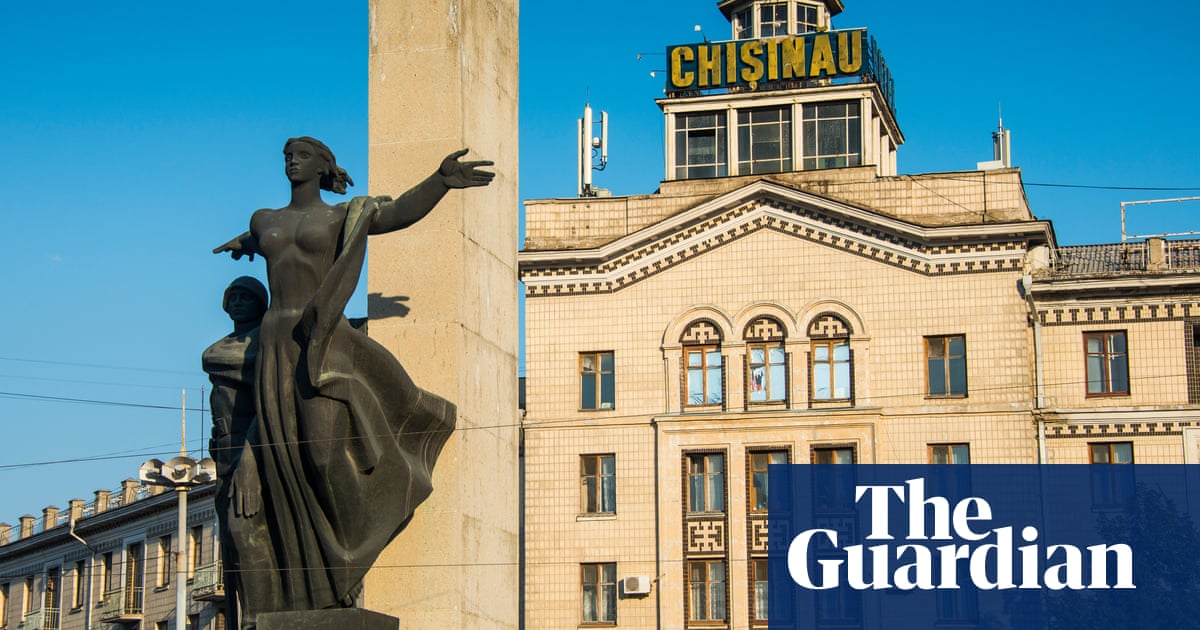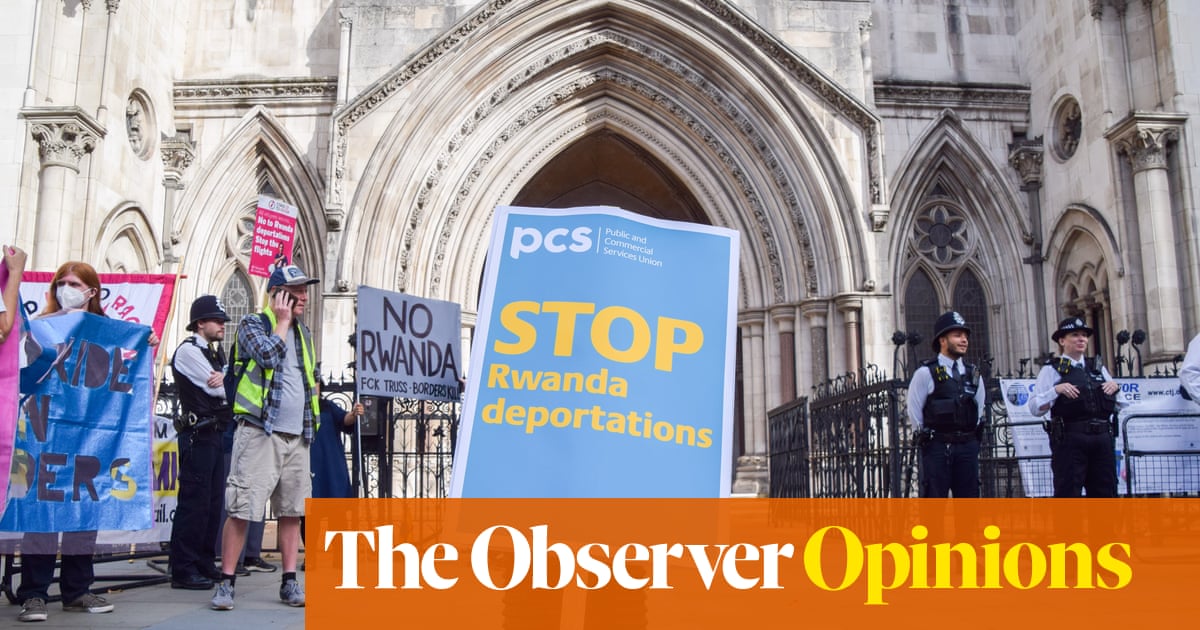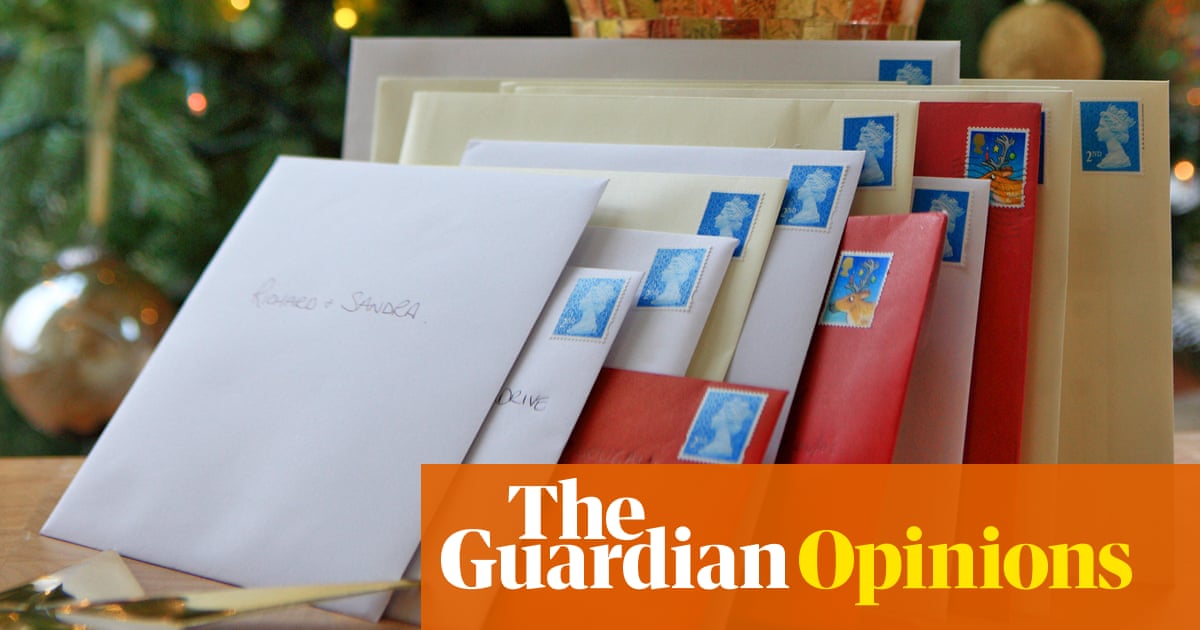
very Hanukkah through my childhood, if I was visiting my grandparents’ Liverpool home, my Grandpa Oskar told me the exact same story. With a pickle on his side plate – my grandma serving up his favourite dinner of latkes, vusht (smoked sausage) and eggs – he’d recount the night during this very Jewish festival in 1937 that his family – our family – fled for their lives from the Nazis.
The preparations for their escape might have been secretly in motion for weeks, but the first he knew of the plan was as it was happening: he arrived home from school to be told he and his brother were going on a trip that very December night. They’d be travelling with their mum; their father – my great-grandpa – would meet them on their journey. It was only later that he’d learn their destination was England, a new permanent home for our family, now refugees.
He was only eight years old back then; young Oskar knew nothing of the rise of the Reich and the imminent, deadly threat it posed to Jews across Europe. The Nazis had already been voted into power in Danzig’s parliament; a corn merchant by trade who travelled across Germany and beyond, Oskar’s father could see the atmosphere across the continent worsening. Once his clean-as-a-whistle Jewish business partner was arrested on trumped-up fraud charges, my great-grandpa knew they had no choice but to run. And quickly.
As instructed, my grandpa innocently packed a small bag and they left under cover of darkness. Little did he know that much of a lifetime would pass before he returned one final time to the city where he was born.
However many times I might have heard this tale, I’d sit and listen, transfixed, in the Hanukkah candle light.
My grandpa died last year at the age of 90. His life was long and full, something he never took for granted. For decades, he proudly called Liverpool home, but he was born in Danzig, now Gdańsk, Poland. Before he died, I’d started making a documentary about Gdańsk for BBC Radio 4: an exploration of the place that – had things been different – he might have grown old in.
It’s a city with a fascinating and complex history. Before the First World War, Danzig was part of the German Empire; after the Second World War (having been annexed by the Nazis in 1939) it became what it is today – Gdańsk, Poland. In those 20 interwar years, though, when my grandpa was born, Danzig was a semi-autonomous region under the control of the League of Nations. Hitler’s annexation of Gdańsk marked the start of the war, and on the outskirts of the city he built the first concentration camp.
It was never just its past that I wanted to explore; this was always going to be deeply personal. But after his death, learning about his life felt somehow a more poignant undertaking; answering the questions I’ll forever wish I’d asked him myself. Plus, I also had to grapple with the promise I’d only recently made him.
Since Britain had voted to leave the European Union in 2016, grandpa and I regularly had the same conversation. In recent years, some European countries which had seen their Jewish populations destroyed had offered to restore citizenship to their descendants. This would make me a dual national. To my mind, grabbing a passport made sense: skipping the looming queues at Europe’s passport control? A total no-brainer.
But Grandpa was reluctant to hand me the documents I needed. The prospect of me becoming a citizen of a country that had inflicted such trauma and pain he found uncomfortable. That was the past, he’d say, not my future.
Unfortunately for Grandpa, I inherited his belligerent genes. Not long before he died, we spent a day searching for the paperwork. He made me promise, though, to consider what my application might mean at every stage. I gave him my word and, in return, he gave me his blessing.
The Stągiewny bridge crosses the Motława River in the centre of Gdańsk. While much of the city was razed when the Soviet army arrived in 1945, slowly but surely its traditional architecture has been reconstructed.
Today, it leads you from a bustling strip of waterside restaurants to slightly quieter residential streets. In the early 1930s – my local guide Michal tells me as we make our way across – a synagogue ahead would have marked a proudly Jewish district. At the community’s 1930s height, 10,000 Jews called Danzig home. By the early 1940s there were barely 200. There’s little sign of that Jewish life here today on our whistle-stop tour; only plaques that mark its obliteration.
We stop on the bridge to take in the view, while Michal pulls out an old map of the city. I’d sent him all the clues I’d collected to date: a folder of papers; a crackly tape recording of a talk Grandpa had given decades ago about his memories of life here. He’d often recounted the route he’d taken to walk home from school, past his favourite pickle shop, over a bridge, and on to the apartment.
This, Michal tells me, is that very bridge – and not far ahead we should find their building. The morning’s crisp sunshine quickly fades and from nowhere it’s snowing. We come to a halt on an overgrown patch of concrete shrubland. This is the spot where Grandpa’s home once stood. Here, redevelopment is yet to commence: all that remains among the weeds and litter is a single slab of the block’s foundation stones.
I’d hoped to feel consumed by some deep connections to my grandpa and our roots; an overwhelming sense that this was a homecoming. Instead, I’m scanning the ground to avoid stepping on shards of glass and soiled nappies, trying to muster up the perfect, poignant pose for our photographer in which I want to be moved, but I’m actually just numb and shivering. There’s no trace of my heritage, nothing here to connect to. And then Michal – who has clearly sensed my disappointment like other visiting descendants of Jews who once lived here – says something profound that chokes me.
“This blank spot here,” he says, “resembles the blank spot of the Jews that lived in Poland before the Second World War. There’s just this emptiness left. It hasn’t been replaced by anything.”
The Free State of Danzig with its Germanic past no longer exists. Today, the population of Gdańsk is proudly Polish. Grandpa wasn’t Polish; he’d made that abundantly clear. But go to Gdańsk today and you’ll find nothing German. A quirk of its history, I’ve learned, entitles me to becoming a subject of either country. Which to pick, and why, I’ve never been certain.
Convenience initially drove my desire to take another citizenship up, and now I’m facing down these complex existential questions. What does it mean to become a citizen of somewhere new? Need it come with a sense of responsibility? So I interview historians and experts on Europe’s burgeoning far-right; the leader of Gdańsk’s small but resilient present-day Jewish community.
Looking down at the city as my flight takes off, I try to come to some conclusions. Citizenship will do nothing to right the past’s wrongs. Of course Gdańsk didn’t feel like home; it’s not just that my grandpa left: a whole community faced absolute destruction.
Instead, I’m thinking about the life he and our family went on to build in Liverpool. The possibility of a new passport is simply the offering of an opportunity: your ancestors suffered, but there’s now a place for you here, if ever you’d like to take it. It’s an invitation.
That’s precisely what Merseyside offered our family when he arrived as a boy. He learned a language, became a doctor and started a family. He was a Liverpool man to his core: a community leader who still sat down to watch Anfield matches on TV long after his eyes or ears were not strong enough to let him follow what was happening.
The fact I could be welcomed to a place that had forced him and his community out – and those were the lucky ones – feels symbolic. Warsaw or Berlin; Danzig or Gdańsk is not what matters. Maybe I’ll move there; I might just visit. It’s possible I’ll only use the passport to avoid visa issues caused by Brexit. Either way, my grandpa was right: I might be making this choice because of his past, but it’ll be for my future.












